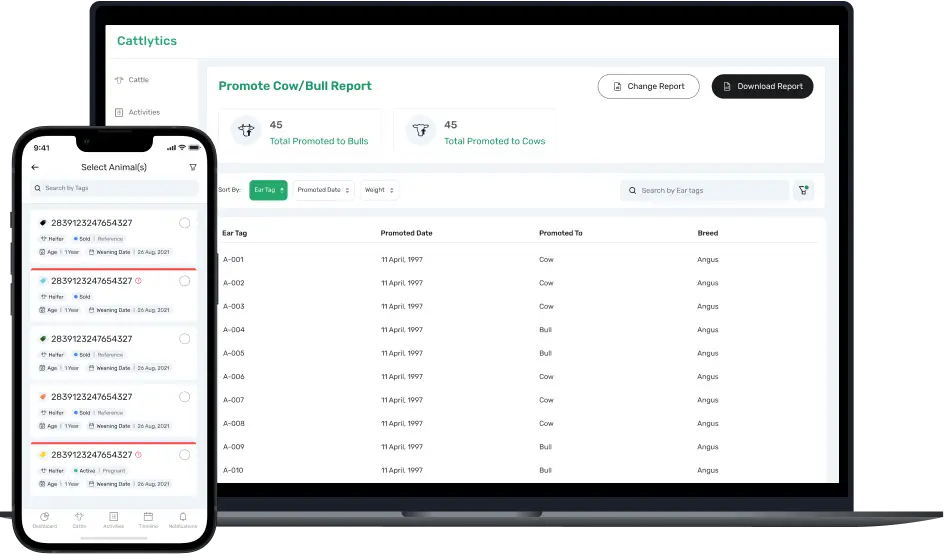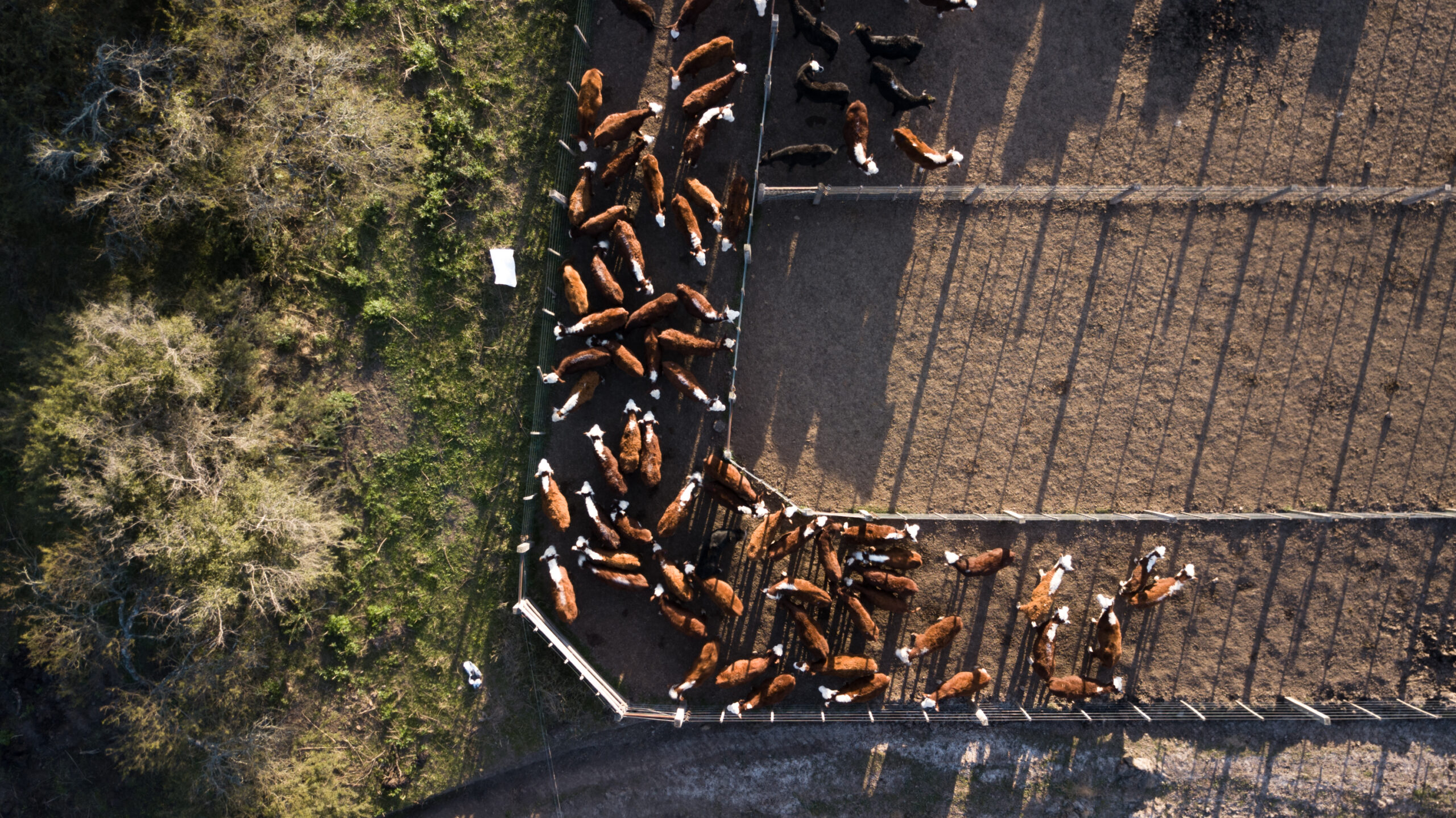Accurate record keeping is the backbone of agriculture’s efficiency, profitability, and sustainability. By maintaining detailed records, farmers gain valuable insights into their operations, enabling them to make informed decisions, optimize productivity, and reduce costs.
Record keeping is crucial for managing the various aspects of farming, from finances and livestock health to compliance with industry standards. Especially for dairy farmers, record keeping enables tracking every detail that influences herd productivity and profitability.
Particularly in dairy herd management, the ability to track animal health, milk yields, and feeding routines ensures the overall success of the herd and helps to increase profitability. This guide will explore the essentials of farm record keeping, why it matters, and how implementing best practices can transform agricultural management.
What is Farm Record Keeping?
Farm record-keeping involves systematically tracking activities, resources, and transactions. These records can include financial data, livestock health logs, crop yields, equipment inventory, and labor details. Understanding the importance of record keeping is vital for farmers, as it enables them to comprehensively monitor the performance and health of their operations.
Farmers have the choice between manual and digital systems for managing their records. However, digital record-keeping software is quickly becoming preferred due to its efficiency, secure data storage, and advanced analysis capabilities.
However, digital record-keeping software is becoming preferred due to its efficiency, data storage, and analysis capabilities. Many advanced farm management software solutions assist with record keeping, making it easier for farmers to track everything from herd health to feed inventories.
Types of Farm Records
Keeping various records is essential for running an efficient and profitable farm. The importance of record keeping becomes clear when each record type is managed correctly, as they collectively provide a comprehensive view of the farm’s operations.
Each record type offers valuable insights that can streamline operations, reduce risks, and enhance farm performance. Record keeping’s importance cannot be overstated, as it empowers farmers with the data they need to make data-driven decisions that support sustainable growth and success. Here’s a breakdown of the key types of records farmers should maintain:
- Financial Records: These records cover essential financial data, including income, expenses, cash flow, and profit margins. Financial record keeping enables farmers to monitor their farm’s economic health, make informed budgeting decisions, and ensure that their operation remains profitable over time.
- Production Records: Tracking crop yields, livestock productivity, and dairy outputs is crucial for understanding the farm’s production performance. Detailed production records help farmers identify trends, optimize yield, and make adjustments to improve overall output.
- Inventory Records: Inventory records manage the availability of machinery, feed, fertilizers, and other equipment. By maintaining an accurate account of these items, farmers can avoid overstocking or shortages, helping to save costs and maintain productivity.
- Labor Records: Logging employee hours, wages, and performance metrics enables better labor management. These records help analyze labor costs, improve efficiency, and ensure compliance with labor regulations.
- Health and Medical Records: For livestock, detailed health records covering vaccinations, treatments, and health issues are essential. Proper health records enable proactive animal health management, directly impacting productivity and profitability.
The Importance of Record Keeping in Agriculture
The importance of record keeping in agriculture is profound, as it provides a foundation for efficient, compliant, and profitable farm management. The importance of record keeping extends across every aspect of farm management, from daily operations to long-term resilience, making it a key element in successful, sustainable agricultural practices.
Here’s a closer look at how record keeping directly benefits agricultural operations:
1. Data-Driven Decision Making
Accurate farm records empower farmers to make data-driven decisions that optimize their operations based on historical trends. This is particularly valuable in dairy farming, where tracking milk production data allows farmers to monitor herd health, adjust feeding practices, and improve overall yield. By basing decisions on actual performance data, farmers can enhance herd management, leading to higher productivity and profitability.
2. Improved Efficiency and Productivity
Farm records allow for a detailed operations analysis, helping farmers identify and resolve inefficiencies. For example, dairy farmers can track feed-to-milk conversion ratios to identify areas where nutritional adjustments could increase milk output and reduce costs. When records are used to pinpoint and address these inefficiencies, overall productivity improves, making record-keeping essential for maximizing returns.
3. Compliance with Regulations
Accurate record keeping is crucial for meeting government regulations and industry standards. For dairy farms, maintaining detailed treatment records and tracking medication usage ensures compliance with milk safety standards. This protects consumer trust and secures the farm’s position in the market, as compliance with safety regulations is often required for continued market access.
4. Risk Management and Forecasting
Proper record-keeping plays a pivotal role in farm risk management by helping farmers anticipate and prepare for challenges such as disease outbreaks, market fluctuations, and natural disasters. Comprehensive records facilitate quick responses to unforeseen events and streamline insurance claims or disaster recovery planning. This helps farmers maintain financial resilience and reduces the impact of unexpected disruptions.
Record Keeping for Dairy Herd Management

The importance of record keeping is particularly evident in dairy herd management, where accurate and detailed records help farmers monitor herd health, improve productivity, and manage resources effectively.
In dairy farming, the importance of record keeping is undeniable; it’s essential for managing herd health, enhancing genetic quality, and ensuring productive, efficient operations. Here’s how record-keeping supports key aspects of dairy operations:
1. Health and Medical Tracking
Health records are a cornerstone of effective dairy herd management. Farmers can prevent diseases, detect problems early, and plan timely treatments by tracking each animal’s vaccinations, treatments, and health issues. This health data is invaluable for maintaining a healthy herd, translating to better milk production and profitability.
2. Breeding Records
Accurate breeding records are essential for improving dairy herds’ genetic quality and productivity. Tracking livestock breeding cycles, calving dates, and fertility rates helps farmers make informed breeding decisions that optimize herd genetics for higher milk yields. These records enhance productivity and ensure a consistent and healthy milk supply.
3. Milk Production Records
Monitoring milk production is key in assessing herd performance and farm profitability. Dairy farm management software allows farmers to track milk yields efficiently and adjust data-driven feeding or breeding practices to boost output. This capability demonstrates the importance of record keeping in maximizing milk production and maintaining a profitable operation.
4. Nutritional and Feed Management
Proper record keeping in feed consumption allows farmers to provide optimal nutrition for their dairy herds, impacting herd health and milk quality. Tracking feed costs and calculating feed-to-milk conversion rates ensures that resources are used effectively, supporting sustainability and cost efficiency. Keeping these records also helps farmers adjust feed quality and feeding strategies for improved health outcomes and better production levels.
Benefits of Keeping Farm Records
Record keeping is fundamental in agriculture. It maximizes profitability, improves management efficiency, and promotes sustainable practices. The importance of record keeping extends beyond finances; it is a foundational practice that enhances farm productivity, environmental responsibility, and overall operational success.
Here’s how effective record-keeping contributes to each of these areas:
1. Improved Profitability
Detailed financial records allow farmers to monitor expenses, revenue, and overall cash flow, leading to improved budgeting and financial planning. By tracking every input and output, farmers can identify cost-saving opportunities, optimize resource allocation, and maximize profitability. Accurate records also help pinpoint unnecessary expenditures, reducing waste and enhancing the farm’s bottom line.
2. Better Farm Management
Maintaining comprehensive records provides a clear view of farm operations, making managing labor, tracking machinery usage, and planning daily activities easier. Farm managers can quickly respond to changes or challenges with organized data, improve task delegation, and optimize operational schedules. Effective record-keeping ensures the farm operates smoothly and adapts readily to seasonal or market shifts.
3. Sustainability and Environmental Stewardship
Good record-keeping practices are vital for sustainable farming and responsible environmental stewardship. Records that track resource usage—such as water, fertilizer, and pesticides—help farmers monitor and minimize waste, conserve resources, and reduce their ecological impact. For instance, monitoring fertilizer usage avoids over-application, saves input costs, minimizes runoff, and protects surrounding ecosystems.
Steps to Implement Effective Farm Record Keeping
Implementing an effective record-keeping system is essential for harnessing the full importance of record keeping in agriculture. Following these steps, farmers can establish a strong, efficient record-keeping system that underscores the importance of record keeping in ensuring farm success, enhancing productivity, and supporting sustainability efforts.
Below are key steps farmers can take to set up a system that ensures accurate data, supports better decision-making, and enhances overall farm productivity:
1. Assess Your Current System
Start by auditing your existing record-keeping practices. Evaluate where inefficiencies, inaccuracies, or gaps exist, such as incomplete logs or delays in updating records. This assessment will reveal areas that need improvement and provide a foundation for developing a more efficient record-keeping process. Understanding your starting point will ensure that any changes are targeted and effective.
2. Choose the Right Tools
The right farm management software is crucial for efficient and organized record-keeping. Look for tools that integrate with current farm operations, support various record types (financial, production, health), and offer additional features such as reporting and analytics. Digital tools simplify the process, making capturing, storing, and retrieving data easier, highlighting the importance of record keeping for data-driven farm management.
3. Train Your Staff
Once you have the right tools, invest time in training your team to use them effectively. Proper training is essential so everyone understands the importance of record keeping and contributes to accurate, consistent data entry. Well-trained staff can reduce human error, ensure compliance with the system, and enhance the overall quality of the information being tracked.
4. Regularly Update and Analyze Data
Consistency is key to effective record-keeping. Encourage regular data updates and make it a routine part of daily farm management activities. Set up periodic reviews of the records to identify trends, track progress, and adjust strategies as necessary. These reviews provide critical insights that can support proactive decision-making and long-term planning based on up-to-date, reliable data.
Conclusion
In agriculture, the importance of record keeping goes beyond documenting daily tasks; it’s a strategic tool that drives efficiency, growth, and profitability. With well-maintained farm records, farmers can make informed decisions, optimize resources, manage risks, and maintain compliance with industry standards—elements crucial for long-term success.
For dairy farmers, tracking health records, breeding cycles, and milk yields is vital in maximizing herd productivity and profitability. Using best practices and modern farm management software, farmers can turn raw data into actionable insights, paving the way for a more sustainable and prosperous farm.
FAQs
What Types of Records Should I Keep for My Farm?
Essential records include financial data, production logs, inventory lists, labor information, and health records. These provide a comprehensive view of farm operations, helping improve efficiency and decision-making.
How Can I Improve My Farm’s Record-Keeping Practices?
Start by assessing current record-keeping practices to identify gaps. Next, choose suitable farm management tools, train your team on their use, and establish regular data updates and reviews to ensure accuracy and relevance.
Why is Record-keeping Important in Dairy Farming?
Record keeping is crucial in dairy farming. It helps track herd health, milk production, breeding cycles, and feed efficiency. This data enables better herd management, boosts productivity, and increases profitability.
What are Some Recommended Tools for Keeping Farm Records?
Farm management software like AgriWebb, Granular, and Farmbrite are popular options. These tools offer features tailored to agriculture, making it easier to track livestock, crop production, and operational metrics in a centralized, accessible system.





